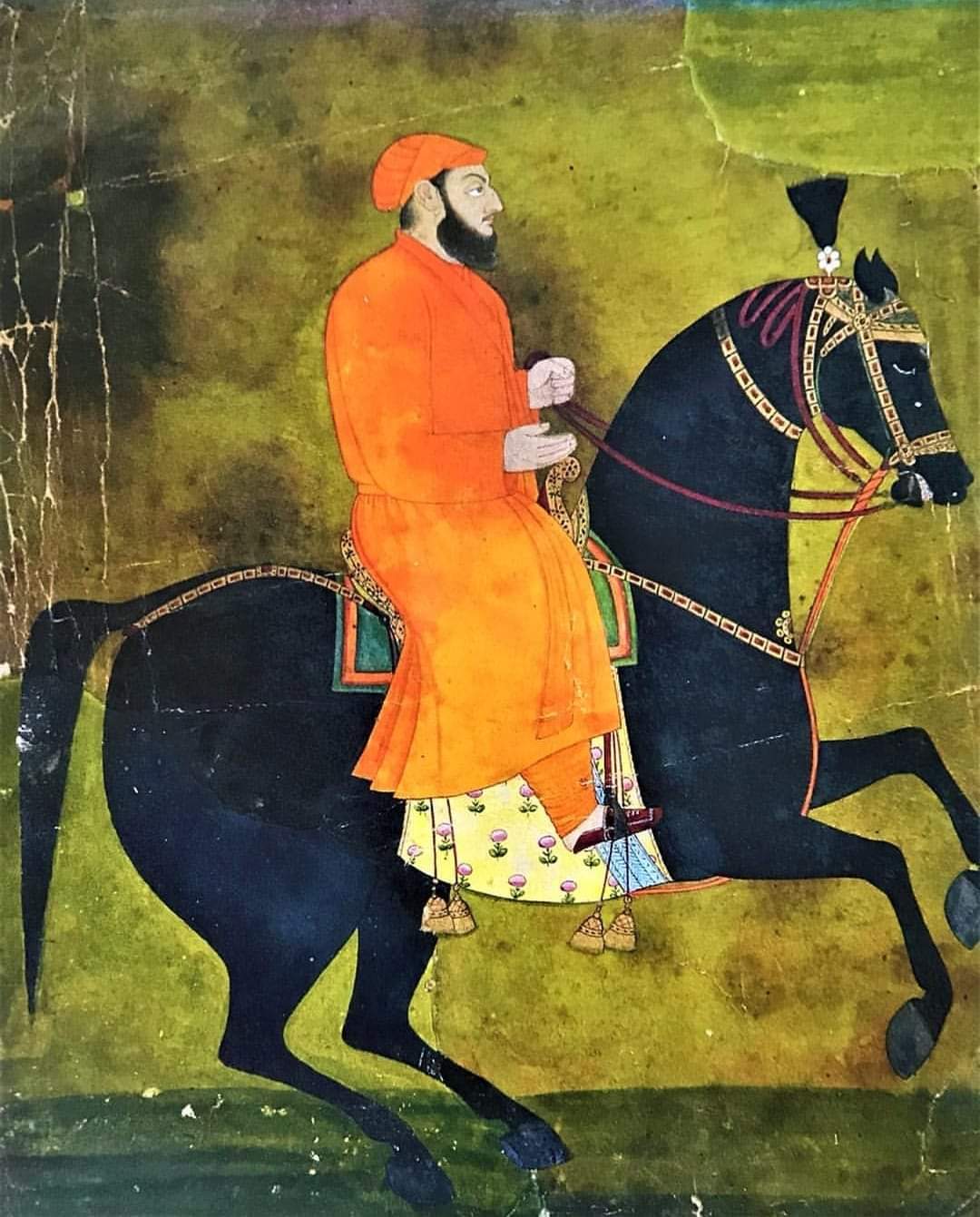Bhai Bidhi Chand (d. 1640) was a warrior as well as religious preacher of the time of Guru Hargobind. he was born into a Chhina Hindu Jat of the village of Sur singh, 34 km south of Amritsar , His father’s name was Chaudhari Vassan and his grandfather’s Chaudhari Bhikkhi. His mother was from Sirhalidevi, another village in the same district. He was one of five close followers of Guru Arjun Dev and Guru Har Gobind Rai.
With Guru Arjun:-
He was one of the five followers chosen to accompany Guru Arjan on his journey to martyrdom at Lahore in 1606. With the death of his father Guru Hargobind now turned his thoughts to training and raising an army to resist the dangers that seemingly threatened his sangat of peace loving Sikhs at every turn. He chose Bidhi Chand to be one of the commanders of the Risaldari (Cavalry) he was raising. He displayed great feats of valour in several battles with the Mughal troops.
With Guru Hargobind :-
His best known exploit, however, was the recovery of the two now famous horses, Dilbagh and Gulbagh, from the stables of the governor at Lahore’s Fort. The horses belonged to a Sikh who had raised and trained them and was bringing them from Kabul as an offering for Guru Hargobind. All along the way the horses had attracted attention. The stories of their extraordinary qualities and beauty had arrived at the Mogul govenor’s court long before the horses reached Lahore. The Govenor offered the Sikh owner a fortune for each animal. With his offers rebuffed he had his men seize them.
Both horses were recovered from the Moghul satrap’s stables when Bidhi jumped a low parapet and rode each of them down a sloped wall into the river Ravi. The saying goes fool me once shame on you–fool me twice shame on me.Returning later Bidi Chand disguised himself as an Astrologer. Soon he arranged a demonstration of how the first horse was taken.
Bidhi Chand recovered the first horse after earning the trust of the stablemen who had allowed him to sleep in the stables after he pretended to be a hayseller. It is said that the first horse’s health became a concern being away from his lifelong companion. So in a daring even almost beyond belief the daring Bidhi Chand returned , this time well disguised as an astrologer, a sooth sayer, who after earning the Govenors trust staged a bit of courtly entertainment re-enacting the first event. The Govenor and his guards were very susprised when, suddenly the new court astrologer jumped over the battlements, half slid down the slopping wall into the river, never to be seen again.
Besides being a brave warrior, Bidhi Chand was well versed in lore and tenets. From Kiratpur, he was sent out by Guru Hargobind on a preaching mission to the eastern provinces where a Muslim saint, Sundar Shah of Devnagar, became so attached to him that, before he left for the Punjab, he secured his word that he would return and spend the his last days with the dying Sant.
Final Days of Life:-
According to Gurbilas Chhevin Patshahi, Bidhi Chand remembered his promise and, as he saw his end drawing near, he took his leave of Guru Hargobind and went to Devnagar. The two friends spent three days reflecting together on the teaching of Guru Nanak, whereafter, continues the Gurbilas, both died at the same time (14 August 1640). Sundar Shah’s disciples buried the one in accordance with Muslim rites and cremated the other in accordance with Sikh rites, and raised shrines in their honour. Some time later, Chaudhari Lal Chand, a nephew of Bhai Bidhi Chand, brought from the site of his shrine at Devnagar some earth over which he built a samadh in his ancestral village of Sursingh.
References :-
- Gurbilas ChhevinPatshahi. Patiala, 1970
- Giani Gian Singh, TwarikhKhalsa. Patiala, 1970
- Max Arthur Macauliffe, The Sikh Religion. Oxford, 1909
- Indubhusan Banerjee, Evoution of the Khalsa. Calcutta, 1980


